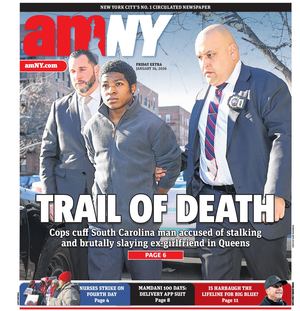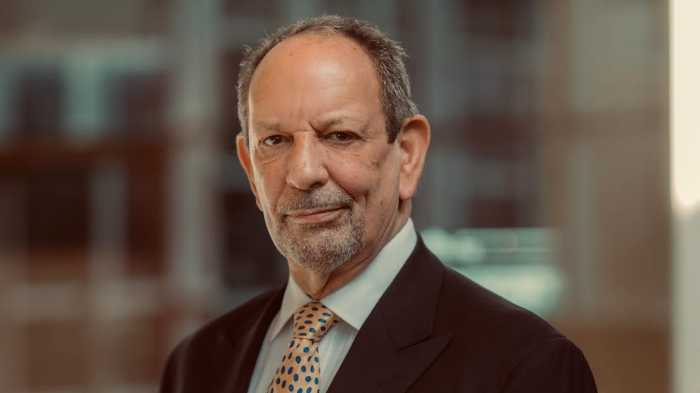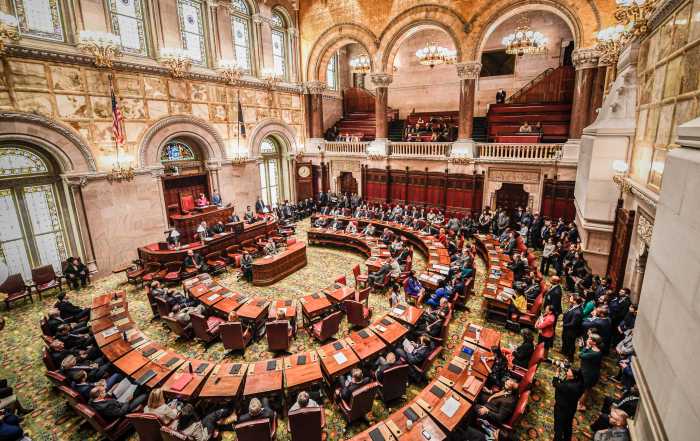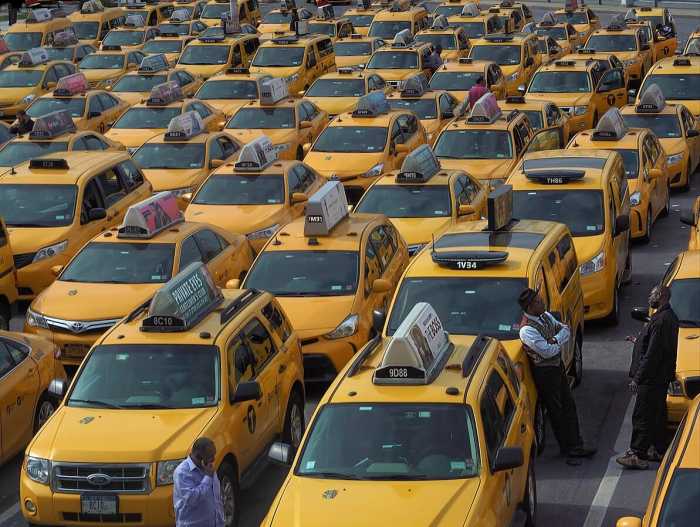Some 50 miles north of New York City, signs proclaim Donald Trump’s name.
This isn’t unusual for Trump, he of the hotels and steaks and vitamins.
But there is something different about the signs off the Taconic State Parkway: They are government property.
The signs are for Donald J. Trump State Park, an underdeveloped, overgrown recreation area that Trump donated to the state in 2006 after his bid to build a golf course there failed.
That was when he was just a businessman, the subject of gossip columns. Now, he’s the presumptive Republican presidential nominee, and politics has caught up. In January, a group of Democratic state legislators pushed to remove Trump’s name from the park.
The “Anything but Trump” bill
In the months after Trump announced his candidacy, some New York politicians looked for a way to gain political points and distance themselves from their fellow New Yorker whose shallow imprint is splashed across the metropolitan area.
Mayor Bill de Blasio said he was looking into the revocation of Trump’s city contracts including skating rinks and the Central Park Carousel. City Councilmember Mark Levine circulated a petition on the subject. Trump’s comments about immigrants and veterans (remember the John McCain controversy?) were enough to justify such opposition.
The outrage didn’t result in anything: A spokeswoman from the mayor’s office says the administration “found no legal way to cancel these contracts.” In the future, the mayor “would not go out of his way to do any business with Mr. Trump.”
Yet Trump continued to be outrageous. After the San Bernardino attacks, Trump suggested that the government bar Muslims from the United States, sparking defiant allegations of hate speech. Then he suggested criminalizing abortion and endorsed torture and on and on.
Later that month, Sen. Daniel Squadron and Assemb. Charles Lavine sponsored bills proposing Trump’s name be stripped from the park.
“The idea that New York State would serve to be Trump’s enabler by maintaining his name associated with park land was abhorrent,” Lavine said on Wednesday.
The bills don’t specify what name should replace Trump’s, but suggestions include Pete Seeger, the folk singer with roots in the area, and Peter Salem, an African-American Revolutionary War soldier.
Trump campaign spokeswoman Hope Hicks questioned the state’s legal ability to remove Trump’s name in a statement, adding that if “the state wants to take his name off, maybe he’ll take back the land.”
The “Anything but Trump” bills are unlikely to become law this legislative session. The Republican majority in particular is unlikely to bring up the bill for a vote in the Senate, though Lavine says there must be Republicans who “find it shameful that Mr. Trump’s name is associated with New York state parkland.”
How did we get here?
The park — which has no boardwalks, pools, campgrounds, indeed no changes at all but for plans to remove some decrepit buildings since Trump donated it and washed his hands of the matter — is typical of Trump’s business dealings.
Trump reportedly paid $2 million for the land in the 1990s. At the news conference announcing the land donation after he failed to secure local approval for his project, he said that he thought the land was now worth $100 million.
A good tax write-off? That’s the kind of question we can’t answer because he refuses to release his tax returns.
The bills raise a question: When do someone’s beliefs and general behavior, if noxious to a wide-enough public, reach a point that disqualifies them from public monumentation?
But their passage would likely only give Trump more ammunition for bluster, raising the ire of his supporters who could see the stripping of his name as PC-coddling; or suggestive of a rigged system that wishes to quiet “straight-talkers” like Trump.
Regardless, the response to the park is reflective of where we are in the saga of Trump.
For months after he announced his candidacy, as the businessman picked off candidate after candidate in debate after debate, Trump’s statements still seemed outlandish or surprising. Now, those statements are Trump canon, notarized by millions of voters.
Those votes lend a seriousness that make howls of indignation, like these lingering bills, seem remnants of a quaint past. The howls were over hypotheticals, words that seemed in little danger of becoming real.
Removing someone’s name from public view is the kind of thing done to a hack, a charlatan, a disgrace — someone universally deemed to be a loser.
Trump has shown himself to be all those things. But now he is one step away from president.
This is amExpress, the conversation starter for New Yorkers. Subscribe at amny.com/amexpress.




































